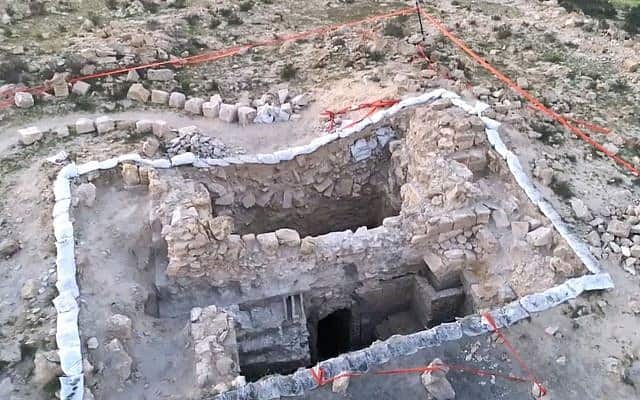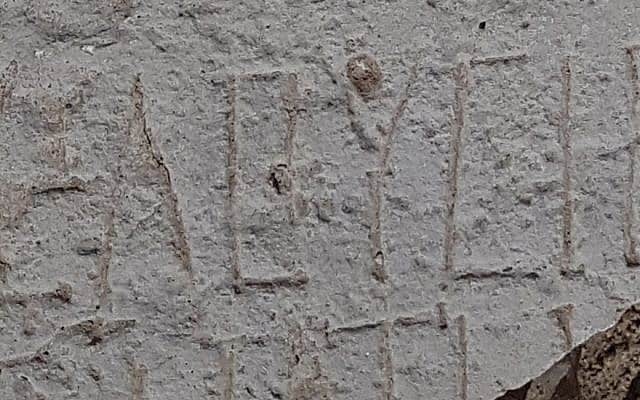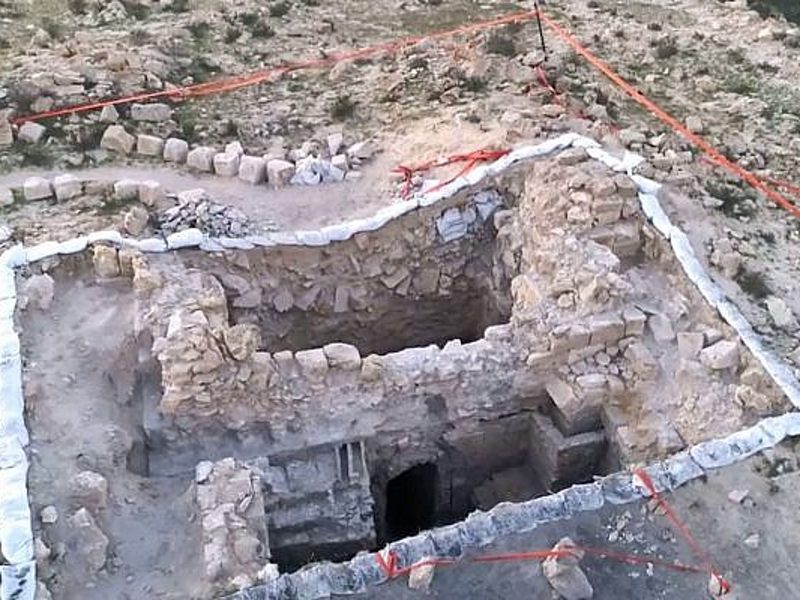
German and Israeli archaeologists have discovered a rare Greek inscription, which they believe was made around 300 AD in the ancient city of Halutza in Israel’s Negev desert.
The Israel Antiquities Authority announcement on Wednesday that the inscription is the Greek name of the settlement, “Elusa.”

According to the Times of Israel “Elusa” now known as Halutza was established in the late 4th century BC as a station along “The Incense Road”, a network of trade routes which stretched some 2,000 kilometres from the Arabian Peninsula to the Mediterranean.
Some 1,700-years-ago, when the inscription was etched in stone, Halutza was a thriving community on the Incense Route, with 8,000 settlers at its peak. Now the desert site is almost barren due to intensive looting during the Ottoman period, said Dr. Tali Erickson-Gini of the Israel Antiquities Authority.
The city reached its peak in the Byzantine period, during the fourth to mid-sixth centuries AD, when it was the only city in the Negev, and became famous for its fine wines.
The newly-discovered Greek-language inscription of the name of the town is currently being researched by Hebrew University’s Dr. Leah Di Segni, who will publish her findings at some point in the future.
The inscription was unearthed near what appears to be a monumentally-large bathhouse which was in use until the sixth century. The archaeological team has so far unearthed part of the furnace system and a caldarium for the bathhouse.
*Source: Times of Israel


